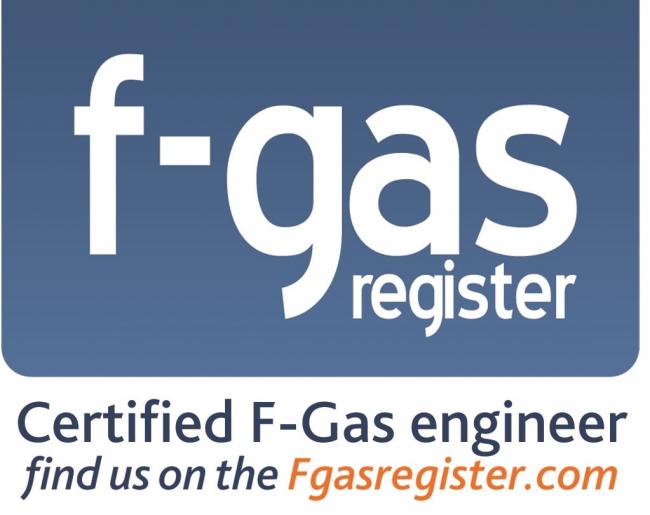
Operators of air conditioning equipment, understand your responsibilities under the latest F-Gas Regulations.
From 1st January 2015, the EU 2014 F-Gas Regulations, on the use of fluorinated greenhouse gases (F-gases) came into force replacing the 2006 regulations. Operators of existing air conditioning systems must meet these revised requirements to comply with the latest regulations.
Firstly what do we mean by the operator?
You are the operator of the equipment if you’re in charge of its day to day running. You do not have to own the equipment. Most companies will outsource these responsibilities to an air conditioning contractor like ourselves. However, it’s critical that these regulations are adhered to. They are statutory, so ignorance is no defence! The good news is that these requirements can be included as part of a routine air conditioning maintenance programme.
So what are your responsibilities?
1. Always use trained technicians
Ensure that your chosen air conditioning contractor holds company F-Gas certification and that all work is carried out by suitably trained engineers. They must have an F-Gas handling certificate to carry out any installation work, leak testing, general maintenance, disposal and decommissioning.
2. Label equipment
There are strict labelling criteria. Either you or your chosen air conditioning contractor, must label equipment containing F-Gas correctly and additionally from 2017 the label must display:
- Mass of F-Gas (in kg)
- CO2 equivalent mass of F-Gas (in tonnes)
- The global warming potential of the F-Gas
3. Leak checking
Where leaks are detected operators must carry out repairs without undue delay. Contractors that install, maintain or dispose of the equipment share the responsibility. Mandatory leak checks must be carried out at specific intervals on all air conditioning and heat pump equipment above certain size thresholds defined in terms of tonnes CO2. If a leak is found during a check, you must repair it and repeat the test within a month to check that the repair has been successful.
Note: Equipment that didn’t require leak checks under the 2006 regulation may do so now.
Your air conditioning contractor will be able to advise you if that is the case.
4. Install leak detection equipment
If your air conditioning equipment contains a quantity of F-Gas that is equivalent to more than 500 tonnes of CO2, you must install a fixed refrigerant leak detection system. Your leak detection system must be checked once a year to make sure it’s working properly.
Note: A system that didn’t need fixed leak detection equipment under the 2006 regulation may do so now. Again, your air conditioning company will be able to advise you to ensure that you comply.
5. Record keeping
Operators must keep detailed records for each piece of equipment that is subject to a mandatory leak check (i.e. above the 5 tonnes CO2 threshold) and record:
- Quantity and type of F-Gas installed
- Quantities of F-Gas added during installation, maintenance or when repairing a leak
- Details (name, address and certificate number if relevant) of any companies that install, service or decommission the equipment
- Dates and results of all mandatory leak checks
- Quantity of any F-Gases recovered
- Whether the F-Gases used have been recycled or reclaimed (including the name and address of the recycling or reclamation facility and, where applicable, the certificate number)
- If the equipment was decommissioned, the measures taken to recover and dispose of the F-Gases
Here at Protech, we’ve been maintaining air conditioning systems for over 25 years. As members of Refcom you can be sure we operate to the very highest standards in refrigerant management. Our company is F-Gas certified and our engineers possess all the statutory refrigerant handling qualifications.
We can manage all your F-Gas responsibilities for you as part of a planned routine maintenance programme to ensure you always comply.
For a free, no obligation maintenance quote and site survey please get in touch.
For further information regarding F-Gas, please see Gov.uk.

